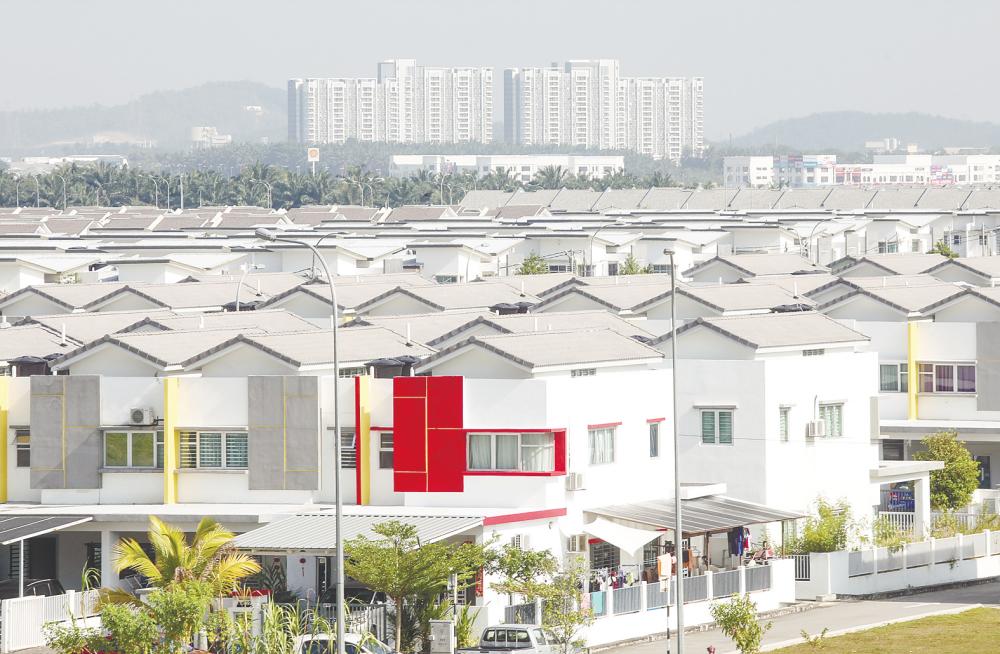PETALING JAYA: An academic has called for policy adjustments and incentives to boost sales of Bumiputera housing lots after a survey reported that as of June, 33% remained unsold three years after completion.
Universiti Teknologi Malaysia property economics and finance Assoc Prof Dr Muhammad Najib Razali was commenting on a poll by the Real Estate and Housing Developers’ Association (Rehda).
It also showed that 47% of unsold Bumiputera lots were priced between RM500,000 and RM700,000 while 29% were homes priced between RM300,000 and RM500,000.
“Several challenges are hindering sales, with affordability being a major barrier. There must be policy adjustments and incentives to encourage Bumiputera to purchase the houses.
“Policies providing favourable mortgage rates or government-backed financing schemes tailored to Bumiputera homebuyers would make them more accessible.”
ALSO READ: Melaka Assembly passes motion to set up state Bumiputera Property Trust Fund
He said although the pricing of Bumiputera lots is lower than those for non-Bumiputera, with a discount of between 5% and 15%, many Bumiputera buyers struggle to make purchases, especially in urban areas where the discount may be insufficient to offset high prices.
He said a key area for improvement is the release mechanism for unsold Bumiputera lots as the current process is slow and cumbersome, making it difficult for developers to sell them to non-Bumiputera.
“Most state governments prohibit status changes for low-cost housing but may allow it for other property types with strong justification.
“The ability to change the status of Bumiputera lots depends on state government policies. In Johor, the status of ‘Rumah Mampu Milik Johor’ units is permanently for Bumiputera.”
Muhammad Najib said Bumiputera units are often mid-range or luxury properties, which does not align with the need for lower priced homes.
ALSO READ: Economy Ministry sec-gen: Bumiputera empowerment is part of all national development policies
“The issue of unsold properties impacts not just Bumiputera buyers but also non-Bumiputera Malaysians as high property prices have made home ownership increasingly difficult for middle and lower income groups.”
He said data from the Malaysian House Price Index for Q2 2024 underscores this growing concern, with property prices continuing to rise despite the issue of unsold properties.
He also said the overall house price index increased by 0.9% compared with the second quarter of 2023, with terraced houses increasing by 1.1%, semi-detached houses by 2.6% and detached houses by 0.5% while high-rise residential units experienced a slight decline of 0.7%.
“With property prices increasing faster than wages, potential buyers of all races are finding themselves priced out of the market. High-rise units still average RM367,201, which is a price that is out of reach for many.”
He said when a large number of property units remain unsold for a long time, the financing environment may tighten as banks become cautious about lending to developers, making it harder to fund new projects.
ALSO READ: Proposed Bumiputera Land Corporation initiative to empower Bumiputera - Ahmad Zahid
He added that a sluggish property market could slow economic growth, impacting related industries such as construction, retail and services while investor confidence may decline, reducing investment inflows.
Rehda president Datuk Ho Hon Sang said the industry needs to address the issue as the low demand and rejection of end-financing loans by banks are the main reasons for the surplus of unsold homes.
“Our survey revealed that in the first quarter of 2024, 69% of respondents faced construction challenges, with high building material costs having a critical impact on business operations. Developers are being cautious due to higher building material costs, which hit smaller developers harder than larger ones.
“We hope Budget 2025 will bring positive news for the industry. With major challenges addressed, we should see a robust and thriving property sector.”
Muhammad Najib said policies providing favourable mortgage rates or government-backed financing schemes would improve the situation. – Syed Azahar Syed Osman/THESUN









